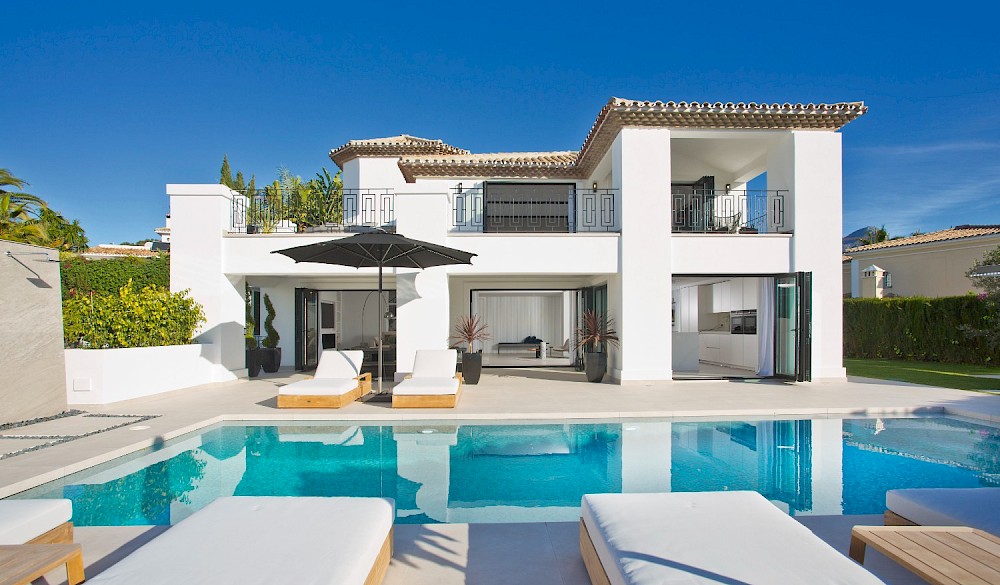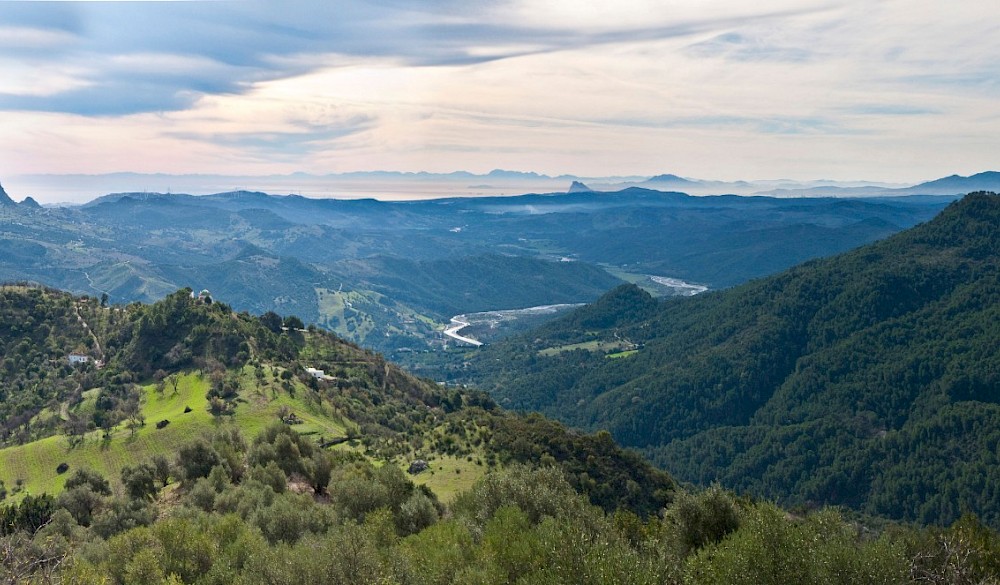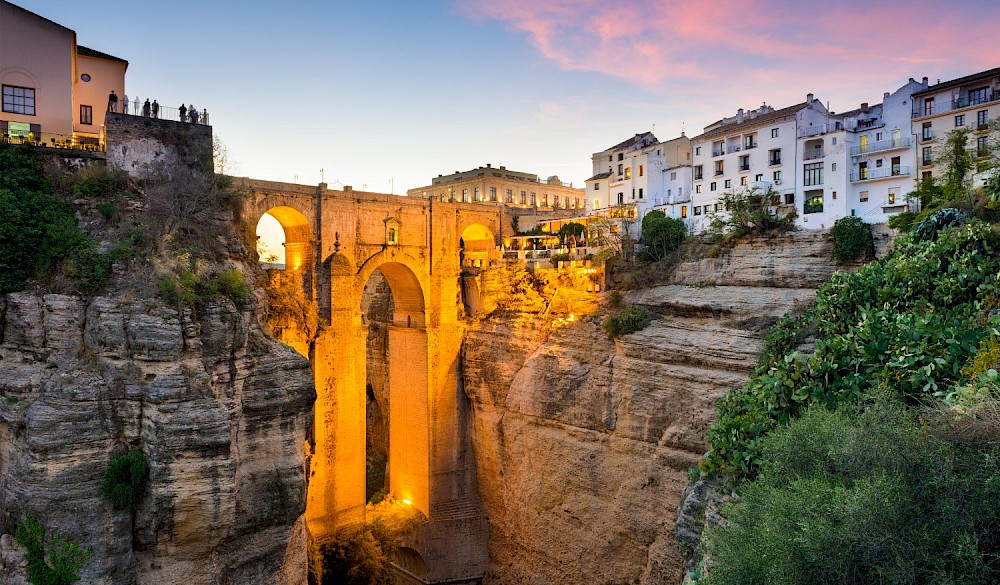Are you dreaming of owning a property in sunny Marbella or the stunning Costa del Sol? Whether you’re looking for a vacation home, a luxury villa in Costa del Sol, or an investment property, Spain is calling your name! In fact, the Spanish property market is more appealing than ever to Americans, especially with the allure of the Mediterranean lifestyle and favorable market conditions in 2024. However, buying property abroad, especially in Spain, can seem daunting. From understanding the legal processes to securing financing, there are many important factors to consider. In this comprehensive guide, we’ll walk you through everything you need to know about purchasing property in Marbella and Costa del Sol, helping you navigate the journey with confidence!
Why Buy Property in Marbella & Costa del Sol?
A Dream Destination for Expats and Investors
Marbella and Costa del Sol have long been cherished by those seeking to live in a dynamic and scenic location, and it’s easy to see why. With its unique blend of traditional Andalusian charm and modern luxuries, Marbella offers an exceptional quality of life that attracts both affluent expatriates and investors from around the world, particularly Americans. Whether you’re looking for a stunning beachfront villa, a stylish penthouse, or a cozy countryside retreat, this region has something for everyone.
For expats, the Costa del Sol provides a vibrant yet relaxed lifestyle that combines Mediterranean warmth, a rich cultural heritage, and world-class amenities. Marbella, with its renowned marina, luxurious golf resorts, Michelin-star restaurants, and upscale shopping boutiques, is a haven for those who enjoy sophistication and exclusivity. On the other hand, the Costa del Sol offers a wide range of charming towns, from the bustling city of Málaga to the quieter, picturesque towns of Ronda and Mijas. For more comprehensive overview of Mijas, including its different areas, property types, and lifestyle offerings, you might want to check our recent post on Mijas: A Comprehensive Guide to New Developments.
Unbeatable Climate and Lifestyle
One of the most enticing reasons to buy property in Marbella and Costa del Sol is the area's enviable climate. The region boasts more than 320 days of sunshine per year, making it ideal for those looking to escape colder climates. Whether you’re a retiree looking for year-round sunshine or a young professional wanting to enjoy a more laid-back lifestyle, the climate is an undeniable selling point.
The Costa del Sol offers more than just weather; it’s the lifestyle that draws people in. From enjoying leisurely dinners in the lively marina of Puerto Banús to soaking up the sun on some of Europe’s best beaches, residents here live life to the fullest. The laid-back atmosphere mixed with modern convenience is a key reason why this area is so popular with expats and second-home buyers. It's not just a place to live—it's a lifestyle choice.
Potential for Strong Capital Appreciation
Aside from the lifestyle benefits, the real estate market in Marbella and Costa del Sol has proven to be a strong investment opportunity. Property prices in the region have been on a steady incline in recent years, driven by an influx of foreign buyers, including Americans, seeking homes in this idyllic Mediterranean paradise. According to recent market reports, Marbella is one of the top regions in Spain for property appreciation, with values rising consistently year-over-year.
Investing in property here can offer solid returns, particularly when you focus on premium areas like Marbella's Golden Mile or the stunning hillsides of Benahavís. As demand continues to grow, buyers can expect long-term value growth, making this an ideal place for those looking to both enjoy the beauty of the region and build long-term wealth.
Get a general overview of the Costa del Sol property market, which is essential for those who may be unfamiliar with the region or considering investing there. Read it here: General introduction to the property market in Costa del Sol.
Understanding the Legal Process for Buying Property in Spain
Navigating the Spanish Legal System
Understanding the legal framework is crucial when purchasing property in Spain, as it differs from American property laws. In Spain, property transactions are overseen by notaries, lawyers, and various governmental institutions. The process is designed to ensure that buyers are fully informed and that all transactions are transparent.
The key legal steps include obtaining an NIE (Número de Identificación de Extranjero), which is essential for foreigners buying property, and signing the “Escritura Pública” (public deed) before a notary. The notary's role is to verify that all parties involved in the transaction are legitimate and that the property has a clear legal title. Know more detailed explanation of the step-by-step process of buying a home in Spain, including how to obtain an NIE number. Check our guide on Step-by-Step Guide to Buying a New Home in Costa del Sol.
Key Documents Needed for Property Purchase
Before you can officially purchase property in Spain, you will need to prepare several key documents. These include:
- NIE Number: This is the Spanish Tax Identification Number required for foreign buyers. You’ll need it to sign contracts, open a Spanish bank account, and handle tax matters.
- Proof of Income: If you’re financing the purchase, banks will require proof of your financial stability. Be prepared to provide tax returns, bank statements, and other documents that show your ability to meet your financial obligations.
- Legal Residency Details: While non-residents can buy property, demonstrating your status and providing additional personal details is essential for both the purchase and eventual tax filing.
Hiring a Lawyer in Spain
While hiring a lawyer isn’t mandatory in Spain, it is highly recommended to ensure that your property transaction runs smoothly. A local lawyer will handle the legal due diligence process, including ensuring the property has a clean title (without debts or legal issues) and verifying that all the proper documentation is in place. They’ll also assist with contract negotiations and represent you at the notary.
By having an experienced lawyer by your side, you can avoid common pitfalls such as hidden debts or legal disputes over property boundaries, ultimately giving you peace of mind throughout the process.
Financing Your Property Purchase in Marbella & Costa del Sol
Mortgage Options for Non-Residents
As an American looking to buy property in Marbella or Costa del Sol, you may be wondering if it’s possible to secure a mortgage as a non-resident. The good news is that many Spanish banks are open to offering mortgages to foreign buyers, though there are a few things you need to know.
Typically, Spanish banks will offer non-resident buyers a mortgage covering up to 60-70% of the property’s value. The terms and interest rates vary depending on the bank and the applicant’s financial situation, but American buyers can usually expect slightly higher rates compared to Spanish residents. It’s important to compare offers from different banks to secure the best deal for your situation. Our dedicated guide on financing property purchases in Spain, offering more detailed information and resources for property buyers. Read it here: Guide to Financing a Property Purchase in Spain.
Understanding Taxes and Additional Costs
In addition to the property price, there are several taxes and fees to be aware of when buying property in Spain. These include:
- Transfer Tax (ITP): This tax varies by region, but in Andalusia (where Marbella is located), it’s typically around 8-10% of the property price.
- Notary Fees: Notary fees, registration fees, and legal costs can add up to an additional 1-2% of the purchase price.
- Annual Property Taxes: As a property owner in Spain, you’ll need to budget for annual taxes such as the IBI (Impuesto sobre Bienes Inmuebles), which is the property tax.
- Maintenance Costs: Don’t forget to factor in property maintenance costs, including community fees, utilities, and potential renovation or upkeep expenses. Get a broader knowledge about the costs and taxes involved in buying property in the Costa del Sol. Read our guide on Costs and Taxes Involved in Buying Property in Costa del Sol for more info.
Currency Exchange and International Transfers
If you're buying property in Spain from abroad, you'll need to deal with currency exchange and international transfers. Currency exchange rates can fluctuate, so it’s wise to monitor rates closely to ensure you’re getting the best deal. Using a currency exchange provider that specializes in large transactions can help you lock in better rates and avoid bank fees.
When transferring large sums internationally, ensure you understand the costs involved and allow enough time for the transfer to clear. Working with a financial advisor or bank with international experience can help streamline this process.
Common Pitfalls to Avoid When Buying Property in Spain
Beware of Hidden Costs
One of the biggest mistakes foreign buyers make is overlooking hidden costs associated with buying property in Spain. These can include:
- Property maintenance fees: Some properties, particularly in gated communities or resorts, may have high maintenance costs.
- Community charges: If you buy an apartment or property in a shared complex, there will likely be monthly or annual community charges for upkeep of common areas and facilities.
Be sure to ask about all potential fees before finalizing the purchase. Your lawyer or real estate agent can help you assess all costs involved.
How to Avoid Property Scams
While the Spanish property market is well-regulated, scams can still occur. Be cautious when:
- Dealing with overly enthusiastic sellers: If a deal seems too good to be true, it probably is. Always verify the legitimacy of the seller.
- Buying properties without clear title: Ensure that the property is free from debts, liens, or illegal constructions, which could complicate ownership.
Hiring a trustworthy real estate agent and lawyer is essential in protecting yourself from scams.
Language Barriers and Cultural Nuances
Though many Spaniards speak English, especially in popular areas like Marbella, understanding the local language and culture can go a long way. Spanish real estate contracts and legal documents are often in Spanish, so having a translator or bilingual lawyer is highly advisable.
Additionally, cultural differences can impact how transactions are conducted, so understanding the local customs and expectations in the Spanish real estate market is vital.
Choosing the Right Property in Marbella & Costa del Sol
Investment vs. Personal Use
Deciding whether your property will serve as an investment or a personal residence is key to selecting the right property. If you're purchasing as an investment, focus on properties in high-demand areas like Marbella, Puerto Banús, or Estepona, which offer excellent rental potential. If you’re looking for a second home or retirement property, consider lifestyle factors like proximity to amenities, beach access, and overall tranquility.
Factors to Consider When Viewing Properties
When viewing properties in Marbella and Costa del Sol, consider the following:
- Property condition: Assess the structural integrity and age of the property.
- Surrounding area: Check out the neighborhood’s safety, amenities, and proximity to schools, healthcare, and shops.
- Future developments: Research any future construction projects in the area that may affect your property’s value or quality of life.
The Importance of Location for Future Value
In real estate, location is everything! Properties in prime areas of Marbella like the Golden Mile, Nueva Andalucía, or Puerto Banús will likely see higher returns over time due to their desirability and proximity to high-end amenities. Even if you’re planning to live there long-term, buying in a popular, sought-after location ensures your investment grows in value over time.
Finalizing the Deal and Moving In
Understanding the Closing Process
Once you’ve found your dream property in Spain and completed all the necessary steps, the final part of the process is closing the deal. Understanding the closing process is crucial to ensure that everything runs smoothly, so you can enjoy your new property without any legal or administrative setbacks.
The closing process in Spain involves several important steps, and it’s typically conducted in front of a notary, who acts as a neutral third party to verify that the transaction is legally binding and transparent. Here’s a breakdown of what to expect:
- Final Signing of the Property Deed (Escritura Pública): This is the most critical moment in the process. The property deed (Escritura Pública) must be signed in front of a notary. Both the buyer and seller will sign the deed, confirming that the terms and conditions of the sale have been agreed upon. The notary will then record this document, making it a public act.
- Payment of Remaining Balance: At the time of signing the deed, the remaining balance of the property price is due, including any additional fees and taxes. This can be done via a bank transfer, and you’ll need to ensure that the funds are available for the transaction.
- Receiving the Keys: Once the transaction is finalized and the deed is signed, you’ll receive the keys to your new home! This is an exciting moment, and it marks the official transfer of ownership from the seller to the buyer.
- Role of the Notary: The notary ensures that the transaction complies with all Spanish legal requirements and that the seller is transferring full ownership of the property. They will also check that there are no outstanding debts or legal issues with the property, so you can be confident that the purchase is legitimate.
Property Registration and Legal Formalities
After the deed has been signed, the next step is registering your property with the Spanish Land Registry (Registro de la Propiedad). This is a critical legal formality that protects your ownership rights and ensures that you are recognized as the legal owner of the property.
The registration process involves submitting the signed deed to the land registry, where it will be recorded in your name. The process can take several weeks, so don’t be alarmed if it takes some time. Once the registration is complete, you will receive an official certificate of ownership.
Why Property Registration Is Important
- Legal Protection: The Land Registry ensures that your ownership is recognized under Spanish law, offering legal protection against claims or disputes over the property.
- Proof of Ownership: This document is your official proof that you own the property, which is crucial for any future transactions, such as selling the property or taking out a mortgage.
- Tax Obligations: Property registration also ensures that you are listed as the responsible party for paying property taxes and other related costs.
In addition to registering your property, there are a few other important legal formalities that need to be addressed:
- Payment of Taxes: You will be required to pay property transfer taxes (Impuesto de Transmisiones Patrimoniales, or ITP), which vary by region, as well as any notary fees and other closing costs. These taxes are typically paid within a few weeks of signing the deed.
- Obtain an Energy Efficiency Certificate: An energy efficiency certificate is mandatory when buying property in Spain. This document rates the energy efficiency of the property and is required for the sale and transfer of ownership.
It’s recommended to consult with your lawyer or legal advisor to ensure that all these legal steps are correctly followed.
Making the Move to Spain
Once your property is officially registered in your name, it’s time to start planning your move. Relocating to Spain is an exciting process, but it comes with its own set of challenges. Here are some essential steps to help you navigate the transition:
- Opening a Spanish Bank Account: To handle financial transactions in Spain, such as paying bills, property taxes, and managing your mortgage, you’ll need to open a Spanish bank account. This is a straightforward process that usually requires a passport, proof of residence, and your NIE number. Most banks in Spain offer services in English, making the process easy for foreigners.
- Obtaining Spanish Residency: If you plan to live in Spain for more than 90 days, you’ll need to apply for residency. As an American, you can either apply for a residence visa or, if you are purchasing property above a certain value, you may be eligible for a Golden Visa, which grants residency to non-EU citizens who invest in property worth €500,000 or more. Once you have residency, you’ll also need to apply for a residence card (Tarjeta de Residencia), which serves as official identification.
- Registering with the Local Authorities: Once you’ve settled into your new home, it’s essential to register your residency with the local town hall (Ayuntamiento). This process is called empadronamiento and is required to access local services like healthcare, schools, and social security benefits. It’s a straightforward process that involves submitting proof of your address and identification.
- Healthcare and Insurance: As a resident of Spain, you are entitled to access the public healthcare system (Sistema Sanitario Público). However, if you’re not eligible, or if you prefer private healthcare, you can easily arrange private health insurance. Spain boasts an excellent healthcare system, with top-rated hospitals and medical professionals.
- Utilities and Services: Setting up essential utilities, such as electricity, water, internet, and gas, is another key step. Many of these services can be set up quickly online or through local offices. It’s advisable to work with a relocation agent or ask your real estate agency (such as Assetfolio) to help facilitate this process, as they are well-versed in the local market and can provide assistance with everything from utility setup to managing your property’s maintenance.
Assetfolio’s Support During Your Relocation Journey
At Assetfolio, we understand that the process of relocating to Spain can feel overwhelming, especially when dealing with legalities, paperwork, and the logistics of settling into a new country. That’s why we offer comprehensive support to guide you through every step of your journey. From helping you find your ideal property to assisting with your move and ongoing property management, we are committed to making your relocation as smooth and stress-free as possible.
What We Offer:
- Comprehensive Property Search: Whether you’re buying a vacation home, rental property, or permanent residence, Assetfolio will help you find a property that meets your needs and budget.
- Expert Legal and Financial Guidance: Our team of legal experts and financial advisors will ensure that all aspects of your property purchase are handled correctly, from contract signing to tax implications.
- Post-Purchase Services: From setting up utilities to assisting with Spanish residency and relocation, we’re here to ensure that you feel at home in Spain.
Why Choose Assetfolio for Your Property Investment in Marbella & Costa del Sol?
- Local Expertise and Market Knowledge: With years of experience in the Costa del Sol market, Assetfolio provides unparalleled insights into the best properties and investment opportunities in Marbella and beyond.
- Proven Track Record of Success: Assetfolio has successfully helped many Americans and international buyers find their dream homes or lucrative investment properties in the region.
- Personalized Service and Guidance: Whether you’re a first-time buyer or a seasoned investor, Assetfolio offers tailored advice and full support throughout the entire buying process.
- Innovative Tools and Technology: Assetfolio uses the latest technology to offer a seamless property search and buying experience, helping you find the perfect property in the most efficient way possible.
- Transparent and Competitive Fees: Assetfolio offers clear and competitive fees, ensuring that there are no hidden costs along the way.
FAQ Section:
Q1: How long does the process of buying property in Marbella take?
Typically, the process takes between 6-8 weeks, depending on how quickly the paperwork is processed. It can take longer if there are any complications, such as additional legal checks.
Q2: Can Americans buy property in Spain?
Yes, Americans are allowed to purchase property in Spain. However, it’s important to have the correct documentation, such as an NIE number, and understand the legal and tax implications of owning property in Spain.
Q3: Are there any restrictions on non-residents buying property in Marbella?
There are no restrictions on non-residents buying property in Marbella, but non-residents will need to comply with specific legal requirements, including securing an NIE number and potentially providing proof of income.
Q4: How much do I need to budget for additional costs when buying property in Spain?
You should budget around 10-15% of the purchase price for additional costs, including taxes, notary fees, and registration fees.
Conclusion:
Purchasing a property in Marbella and Costa del Sol is an exciting step, but it’s essential to understand the local market and navigate the legal, financial, and logistical aspects with care. Whether you’re seeking a second home, an investment property, or a retirement haven, choosing the right partner can make all the difference. Assetfolio offers the expertise, support, and resources you need to make the buying process smooth and successful. Start your journey today and let Assetfolio help you find your dream property in Spain!






